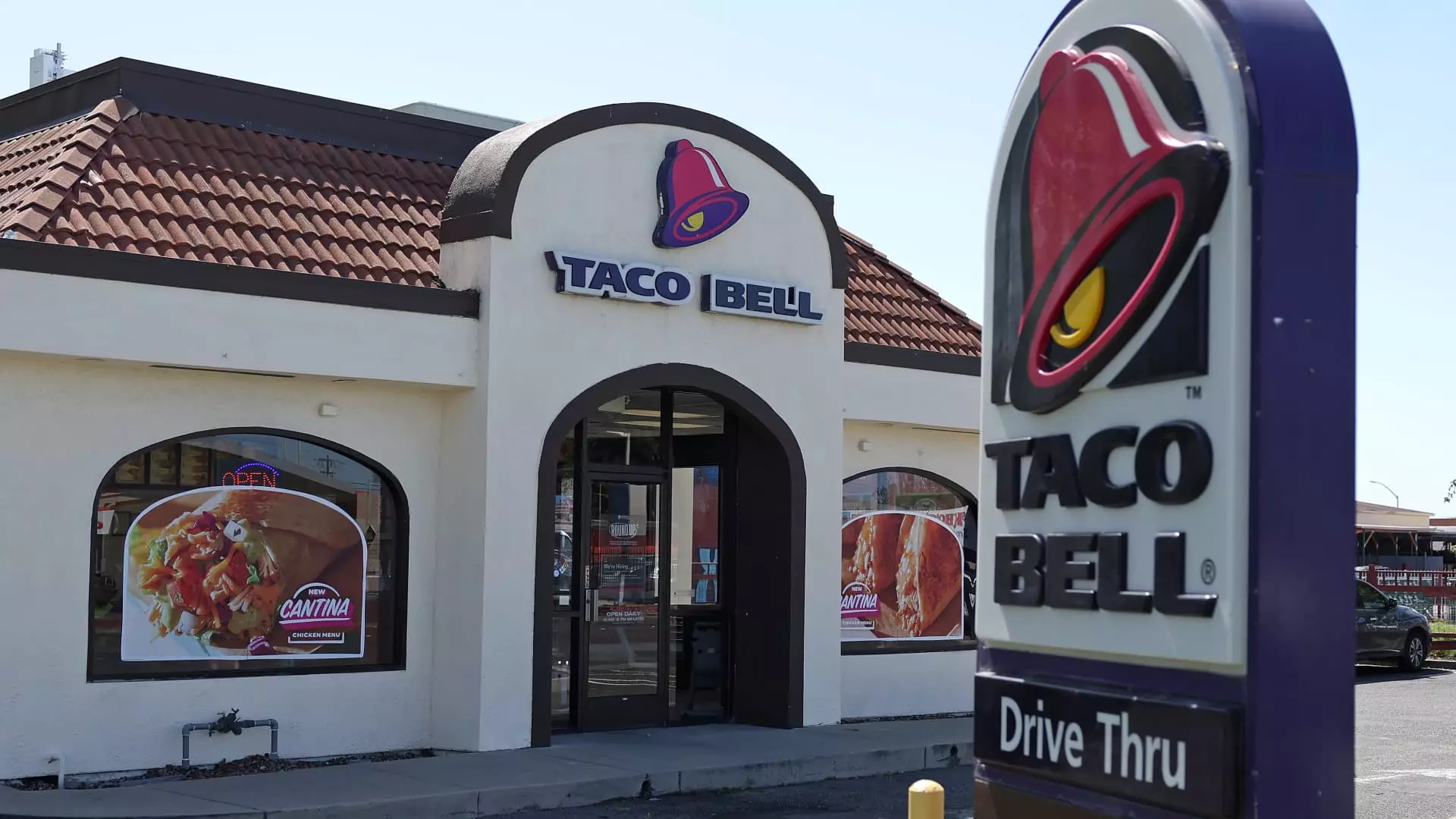E. coli outbreaks often trigger widespread concern about food safety, and recent events involving major fast-food chains underscore the severity of the situation. The interconnectedness of supply chains in the food industry has led Yum Brands and Restaurant Brands International, the parent companies of Taco Bell, Pizza Hut, KFC, and Burger King, respectively, to take proactive measures in response to an alarming outbreak linked to McDonald’s Quarter Pounders. The reactions of these companies highlight not just their operational responses but also raise questions about the safety protocols in place in the fast-food sector.
The current E. coli outbreak is particularly troubling, having resulted in one unfortunate death and 49 confirmed illnesses across ten states, including Colorado, Nebraska, and Wyoming. Health authorities have made significant strides in tracing the source of the bacteria, focusing on two critical components of the affected burgers: the fresh beef patties and the slivered onions. As investigations continue, the Centers for Disease Control and Prevention (CDC) reported that a notable percentage of interviewed individuals had consumed Quarter Pounders prior to falling ill.
In the wake of these alarming revelations, McDonald’s has taken precautionary action by removing the Quarter Pounder from about 20% of its U.S. restaurants. By focusing on one specific supplier, the fast-food giant is not only trying to mitigate risk but also manage customer trust, showcasing an adaptable response to crisis management in real-time.
Yum Brands has also been vigilant, announcing the removal of fresh onions from select Taco Bell, Pizza Hut, and KFC locations. A spokesperson for the company emphasized that this decision is rooted in an abundance of caution and adherence to both supplier and regulatory guidance. Nevertheless, the specifics of their actions remain vague, as the number of affected restaurants was not disclosed. This lack of transparency may generate uncertainty among consumers, who rely heavily on clear communication from food brands, especially in times of safety concerns.
Restaurant Brands International took a similarly careful approach, identifying that 5% of its Burger King locations received whole onions sourced from the implicated Taylor Farms facility. The spokesperson for Burger King stated that even in the absence of any health jurisdiction contact or reported illnesses, they proactively instructed affected locations to dispose of the onions. This decision resonates with a commitment to food safety that can both protect consumers and help maintain brand reputation. The emphasis on internal processes illustrates a robust understanding of the importance of food safety within the industry.
As the situation unfolds, it becomes apparent that suppliers like Taylor Farms play a pivotal role in food safety. The company is under scrutiny due to its position in the supply chain and its connections to both McDonald’s and U.S. Foods, the latter of which recently initiated its own recall on some onion products from Taylor Farms. The lack of comment from Taylor Farms in the face of such grave implications raises questions about supplier transparency and accountability. It also emphasizes the need for stronger food safety regulations that not only hold restaurants accountable but also suppliers.
As the CDC continues its investigation, the focus on supplier practices and protocols becomes ever more crucial. In a world where foodborne illnesses can have severe repercussions, food suppliers must prioritize safety and quality to safeguard public health. A reevaluation of supply chain dynamics may be necessary to ensure consumer trust remains intact amidst rising concerns.
This E. coli outbreak presents an urgent challenge for fast-food chains that could have lasting implications for consumer behavior. As public health investigations continue, affected companies need to re-assess their practices, ensuring the implementation of strict safety protocols at every level of their supply chains. Transparency and proactive communication are essential in restoring public confidence. The fast-food industry stands at a crossroads, where the necessity for enhanced safety measures can no longer be viewed as optional but rather as an integral component of business practices.
With food safety a paramount concern, only time will tell how these incidents reshape consumer confidence and influence industry standards moving forward. The lessons learned from crises like this can and should lead to a stronger food safety framework that protects public health and encourages trust in the fast-food sector once again.

